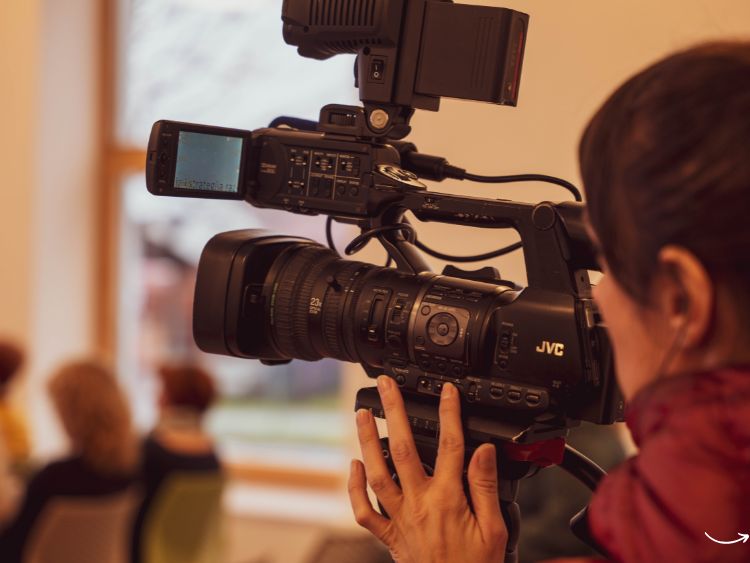Planning a wedding is a monumental task, with countless details to manage. Among the most critical aspects is ensuring that every precious moment is captured beautifully, which is where a skilled wedding videographer comes in. But before you entrust someone with this significant task, it’s essential to have a clear and comprehensive wedding videography contract. This document isn’t just a formality—it’s your safety net, ensuring that both parties know what to expect. Let’s dive into what makes a solid wedding videography contract, why you need one, and how to craft it to protect your big day.
Why a Wedding Videography Contract Matters
A wedding videography contract is crucial because it sets clear expectations and outlines the responsibilities of both the videographer and the couple. This agreement helps avoid misunderstandings and provides a reference if disputes arise. Here’s why it’s indispensable:
- Clarity on Services: It specifies what services the videographer will provide, including the number of hours they’ll work, the events they’ll cover, and any additional services like editing or drone footage.
- Budget Control: It details the costs, payment schedules, and any extra fees, helping couples manage their wedding budget effectively.
- Protection: It legally protects both parties in case of cancellations, no-shows, or other unforeseen issues.
- Quality Assurance: It ensures the videographer delivers the agreed-upon quality and style of footage.
Key Elements of a Wedding Videography Contract
Creating a wedding videography contract might seem daunting, but breaking it down into essential elements makes the process straightforward. Here’s what you need to include:
1. Contact Information
Include full names, addresses, phone numbers, and email addresses for both the couple and the videographer.
2. Date and Location
Clearly state the wedding date, ceremony location, and reception venue. If the videographer is covering multiple locations, list all addresses and timelines.
3. Scope of Services
Detail the services provided, such as:
- Hours of coverage
- Number of videographers
- Type of footage (ceremony, reception, preparations, etc.)
- Editing services
- Additional features (drone footage, highlight reel, raw footage)
4. Payment Terms
Outline the total cost, deposit amount, and payment schedule. Include details on:
- When payments are due
- Accepted payment methods
- Late payment penalties
- Refund policy
5. Delivery Timeline
Specify how and when the final product will be delivered. This includes:
- Expected delivery date for the edited video
- Format of delivery (digital download, USB drive, DVD, etc.)
- Number of copies provided
6. Rights and Usage
Define who owns the rights to the footage and how it can be used. Typically, couples have personal use rights, while videographers may retain commercial rights for their portfolios.
7. Cancellation Policy
Explain the terms for cancellations, including:
- Conditions for a full or partial refund
- Notice period required for cancellations
- Rescheduling terms
8. Liability and Insurance
State the videographer’s liability limits and any insurance coverage they carry. This protects both parties in case of equipment failure, accidents, or other issues.
9. Contingency Plans
Outline backup plans for emergencies, such as:
- Replacement videographer if the primary cannot attend
- Equipment backups
- Alternative plans for inclement weather
10. Signatures
Include spaces for both parties to sign and date the contract, making it legally binding.
Crafting a Fair Payment Schedule
Payment schedules can vary, but a common structure includes:
- Deposit: 25-50% of the total fee, paid upon signing the contract.
- Second Payment: Another percentage due before the wedding day, often 25-50%.
- Final Payment: The remaining balance, due upon delivery of the final video.
Common FAQs About Wedding Videography Contracts
What happens if the videographer can’t make it to the wedding?
Most contracts include a clause about contingency plans, ensuring a backup videographer will cover the event if the primary videographer is unavailable.
Can we request changes to the final video?
Yes, but it’s essential to outline the revision policy in the contract, specifying how many rounds of edits are included and the cost of additional revisions.
What should we do if we’re unhappy with the final video?
Contracts typically include a satisfaction clause. Review this section to understand your options, which might include revisions or partial refunds.
Final Tips for a Rock-Solid Wedding Videography Contract
- Be Detailed: The more details you include, the better. Clear descriptions prevent misunderstandings.
- Communicate: Discuss all contract terms with your videographer to ensure mutual understanding.
- Seek Legal Advice: If possible, have a lawyer review the contract to ensure it’s comprehensive and fair.
Summary
A well-crafted wedding videography contract is the foundation of a successful collaboration between you and your videographer. It ensures that every beautiful moment of your wedding day is captured exactly as you envisioned, with no surprises. By covering all the critical elements—from scope of services to payment terms and contingency plans—you protect both your investment and your peace of mind. So, take the time to draft a detailed contract and start your journey to a perfectly filmed wedding day with confidence.
Authoritative Links
- https://www.theknot.com/content/wedding-videography-contract-guide
- https://www.brides.com/wedding-videographer-contract-5090001
- https://www.weddingwire.com/wedding-ideas/what-to-include-in-your-wedding-videography-contract



